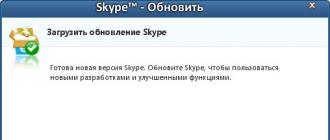The accelerated development of production was naturally accompanied by a corresponding increase and renewal of the amount of knowledge accumulated by mankind. D. Martin, one of the largest specialists in the field of information processing, claims that "... by 1800 the total amount of human knowledge doubled every 50 years, by 1950 it doubled every 10 years, and by 1970 - every 5 years" ... Some analysts believe that this period is currently only 2-3 years. The avalanche growth of information flows, which began in the 19th century, by the middle of the 20th century led to the fact that people lost the ability to navigate the sea of \u200b\u200binformation and efficiently process it, since even a simple search for the necessary information had to spend very significant efforts. And this is despite the fact that a significant proportion of people have already become involved in the labor process directly related to information processing. According to a number of American researchers, by the middle of the 20th century, more than 30% of the working-age population (accountants, postal workers, bank employees, etc.) was involved in the informational sphere of labor in the United States. The situation that has arisen was once called "information explosion". By the end of the 20th century, information became the main subject of labor in the social production of industrialized countries. And the trend of pumping labor resources from the material sphere into the sphere, one way or another connected with information processing, is steadily strengthening all over the world.
The emergence of computers
So, by the middle of the 20th century, mankind faced the problem of curbing the "raging" information element, when information becomes inaccessible only because there is a lot of it and it is very, very difficult to find the necessary data. By the same time (as ordered), technical conditions for the production of software-controlled computers were created, which were implemented in the above-mentioned electromechanical computing machines... However, mechanical movements - an integral part of the implementation of computational operations in mechanical and electromechanical machines - significantly limited their performance. For example, the fastest relay machine "RVM-1", which was built in the 50s of the XX century in the USSR under the leadership of NI Bessonov, performed the multiplication operation in 0.05 s (20 multiplications per second). That is, the RVM-1 was only 14 times faster than the Mark-2. This level of performance did not satisfy the practical needs even of that time. Only completely electronic, that is, excluding mechanical movements in the process of calculations and, therefore, inertialess devices could solve the problem of the speed of computers.
The beginning of the latest electronic stage in the development of information processing facilities dates back to the forties of the XX century. In 1937-1942 in the USA, under the leadership of J. Atanasov and K. Berry, the first completely electronic machine "ABC" (Atanasoff-Berry Computer), containing about 600 electronic tubes incandescent. But this machine could only perform addition and subtraction operations.
The first computer in the full sense of this word i - a universal program-controlled Electronic Computing Machine (the corresponding term of English-language origin is a computer) was developed in 1943-1945 at the University of Pennsylvania in the USA under the leadership of D. Mauchly and P. Eckert. This machine was called "ENIAC" - Electronic Numerical Integrator And Computer - electronic digital integrator and calculator. It weighed 30 tons, its height was 6 meters, and the area was 120 square meters. The machine consisted of 18 thousand electronic incandescent lamps and performed about 5 thousand arithmetic operations per second (compare with 20 operations per second for the RVM-1 electromechanical machine),
The program of the machine "ENIAC" was set manually using mechanical switches and flexible cables with plugs inserted into the desired connectors. Therefore, any changes in the program required a lot of effort and time. The outstanding mathematician John von Neumann, analyzing the work of the first computers, came to the conclusion that it was necessary to store the running program and the data processed by this program inside the machine, in its electronic circuits, and not outside it - on punched cards, punched tapes or connectors with plugs. The first machine with a stored program is the Electronic Delay Storage Automatic Calculator (EDSAC), built by M. Wilkes in the UK in 1949. It is customary to count the first generation of computers from this machine.
In our country, the first computers were created at about the same period. In 1947-1951, under the leadership of Academician Lebedev, the first Soviet computer, the MESM (Small Electronic Counting Machine), was launched. In addition, the machines "Strela", "Minsk", "Ural", BESM (Big Electronic Calculating Machine), M-2, "Mir" and some others were produced, developed under the leadership of major Soviet designers and theoreticians I. S. Brook , M. A. Kartsev, B. I. Rameeva, V. M. Glushkov, Yu. A. Bazilevsky.
Information explosion is a process in which there is a constant increase in the speed and volume of information on a global scale.
It is also worth talking about information barriers. This concept was developed by Academician V.M. Glushkov. It represents the discrepancy between the information needs of society and the technical capabilities of their implementation. According to Glushkov, there are three information barriers:
1) Associated with the discovery of writing, which makes it possible to preserve and transmit knowledge. Up to this point human brain was the only place where information was stored. This barrier was overcome around the 5th millennium BC. e.
2) Associated with the advent of book printing, this event dramatically increased the number information carriers... This barrier was overcome around the 15th century. Later, new methods of disseminating and storing information arose, such as: telegraph, telephone, photography, television, cinema, magnetic recordings. But the person still passed information through his brain, the human brain processed this information.
3) Associated with the emergence of Electronic Computing Machines (COMPUTERS), which made it possible to increase the speed of information processing by an order of magnitude. This barrier was passed in the middle of the 20th century, together with the appearance of the first computer. At that moment, the amount of information turned out to be so large that the human brain and its abilities for this processing were simply not enough.
And accordingly it is clear that the growth of information became especially significant after the scientific and technological revolution. If we analyze the growth of information now, we can see a simple exponential dependence of the growth in the amount of information on time, which is shown in the figure below.
Mikhail Naumovich Epstein in his book "Information explosion and trauma of postmodernism" writes that: "Two centuries ago, in 1798, Thomas R. Malthus released his famous" Experience on the law of population and its impact on the future improvement of society ", where he defined the law of disproportion between population growth and the amount of natural resources required for the life of mankind. It turns out that humanity is expanding exponentially, and natural resources are renewed at a rate described by arithmetic progression. And Malthus predicted that with such a growth rate of people, on Earth, there simply will be no resources left to feed humanity and famine will come. But by the end of the 20th century, this problem was partially avoided due to the development of technology, and due to "... the success of education, which sharply reduced the birth rate in civilized countries."
And two hundred years after Malthus, appears new problem, but this time not demographic, but informational.
The information explosion is manifested in the following:
- The emergence of contradictions between the limited ability of a person to process information and the existing powerful streams and sizes of stored information.
- The existence of a huge amount of unnecessary (redundant) information, hindering the perception of information useful to the consumer.
- The emergence of all kinds of economic, political and other social barriers preventing the dissemination of information. For example, classified information required for a certain production.
The consequences of the information explosion are many, I would like to talk about the problem of human intelligence after the information explosion.
§2. Human intelligence after information explosion.
What is intelligence? The Great Soviet Encyclopedia says that "intelligence (from the Latin intellectus - knowledge, understanding, reason), the ability of thinking, rational knowledge, in contrast to such, for example, mental abilities as feeling, will, intuition, imagination, etc. . "
For a person to feel normal, it is necessary that he collapse in himself 3 components: physical, spiritual and intellectual. If you take away at least one of the components, then a person will not be able to exist.
To train the intellect, the brain needs to work, i.e. read, think, etc., but do it gradually and completely, and not in leaps and bounds, a little bit everywhere.
This is the problem of the information explosion. A man lags behind mankind. There is a growing imbalance between "the development of human individuality, limited by biological age, and the socio-technological development of mankind, for which no time limit is still visible." With every new generation, an increasingly heavy burden of knowledge and impressions accumulated in previous centuries and with which a person is unable to assimilate is imposed on a person's personality.
This whole amount of knowledge and that vast amount of information that accumulates in the interval of, say, 16-17 centuries, is now delivered to our head within one week, that is, the speed of information creation increases thousands of times, despite the fact that the information accumulated by all previous at times, it is also continuously summarized and updated as part of new information resources.
It turns out that a person of the modern turn (20-21) centuries must understand in his life a colossal number of times more information than his compatriot who lived somewhere 300-400 years ago.
You can cite some statistics related to the information explosion, the main victims of which are the last two or three generations of the 20th century.
The world's best libraries are doubling their number of books and treasures every 14 years. At the beginning of the 13th century, the Sorbonne library in Paris was considered the largest in Europe: it contained 1,338 books.
The daily edition of the New York Times has more information than the average 17th century Englishman has ever studied in his lifetime.
Over the past 30 years, more new informationthan in the previous five thousand years.
Consequently, a person may feel constrained in development, a cripple, unable to fully compare with the information environment surrounding him.
Voltaire said: "The number of facts and essays is growing so rapidly that in the near future we will have to reduce everything to extracts and dictionaries."
This is confirmed in the 21st century, fewer and fewer people read classic novels of the 17-19 centuries, and some generally know about their existence only from encyclopedias, and short retellings, movies, magazine articles and the Internet. This is to be expected, since a large amount of information has appeared that cannot be studied by a person in his life. And Epshtein M.N. in his book he says that if the average life expectancy of a person was increased to a thousand years, then the culture would return to its normal course, and a person would have enough time and energy to read all the great works of the classics without haste, and the study of various aspects would be given more time than in ordinary human life.
If earlier you had to travel around the world to get a certain book, now you can hardly even go to the library, because all books fit into computer memory. For example, according to research conducted by Carnegie Mallon University, over the entire life of printing, people have created more than 100 million books. Nearly 28 million of these can be found in the Library of Congress.
Usually, a book in DOC format weighs on average up to a megabyte. Therefore, the volume of all books in in electronic format the Library of Congress is close to 28 terabytes.
It is also estimated that the increase in information available on the Internet, according to small estimates, is 20 terabytes of data per month.
Impressive numbers aren't they?
And what will happen if the human brain for such a short time to shove so much information, and yet it is still necessary to verify it for truth, because if you read various messages on the Internet about one problem, then almost every author talks about this problem in different ways, or sometimes even contradicts himself. So what will happen to the brain in such a situation, it seems to me that it will "explode", or the person will simply "go crazy" from all this rapidly developing information.
Topic 1. Introduction. Modern information society. Informational resources.
Information about objects and phenomena of the environment, their parameters, properties and state, which are perceived information Systems (living organisms, control machines, etc.) in the process of life and work. As applied to data processing on computers, an arbitrary sequence of symbols that carry a semantic load.
1. Information retrieval system.
2. Information.
3. Directory (directory, folder).
4. Internet.
A society in which most of the workers are engaged in the production, storage, processing and sale of information is called
1. modern;
2. progressive;
3. informational;
4. humane.
The term “informatization of society” means:
1. an increase in the amount of redundant information circulating in society;
2. purposeful and effective use of information in all areas of human activity, achieved through the massive use of modern information and communication technologies;
3. increasing the role of the media;
4. massive use of computers.
Information resources are a product of activities
1.programmers
2. practically all major professional groups
3.engineers
4.programmers and engineers
The main resources of the country,
1.materials and energy
2.materials and information
3.materials, energy, information
4.energy and information
Individual documents and individual arrays of documents in information systems (libraries, archives, funds, data banks, other information systems) are called
1.information databases;
3. informational data;
4. databases.
A named collection of any data located on an external storage device and stored, sent and processed as a whole. May contain program, numeric data, text, encoded image, etc.
2. Directory (directory, folder)
4. Variable
Topic 2. Information processes.
Name the processes related to information:
1. transmission and storage of information;
2. storage and processing of information;
3. collection, transmission, storage and processing of information;
4. receiving and storing information.
Information technology is
1. a process that includes a set of methods for storing, processing and transmitting information based on the use of computer technology.
2. a process that includes a set of methods for collecting, storing and transmitting information based on the use of computer technology.
3. a process that includes a set of methods for collecting, storing, processing and transmitting information based on the use of computer technology.
4. a process that includes a set of methods for collecting, storing, processing information based on the use of computer technology.
What is an information explosion?
1. daily news from hot spots;
2. the rapid growth of flows and volumes of information;
3. increased number of newspapers and magazines;
4. communication via the Internet.
Information technology toolkits can be:
1. word processor, spreadsheets, database management systems, publishing systems;
2.database management systems, publishing systems, electronic notebooks, electronic calendars, information systems functional purpose (financial, accounting, marketing, etc.);
3. word processor, spreadsheets, database management systems, publishing systems, electronic notebooks, electronic calendars, functional information systems (financial, accounting, marketing, etc.), expert systems;
4. word processor, spreadsheets;
Select events that can be attributed to information processes:
1. exercise on a sports equipment;
2. waterfall;
3. roll call of those present at the lesson;
4. ride on a carousel.
An example of a process for storing information is:
1. the process of restricting access to information to persons who do not have the right to do so;
2. the process of unauthorized use of information;
3.sequence of human actions aimed at preserving the data structure and their values, presented in one form or another on tangible medium information (paper, birch bark, ML, MD, etc.);
4. the process of creating computer data banks and knowledge bases.
Information search is understood as:
1. transmission of information over long distances using computer systems;
2. reading fiction;
3.receiving necessary information through observation of reality, the use of catalogs, archives, help systems, computer networks, databases and knowledge bases, etc .;
4. sorting information.
The word "interactive" (from English interaction - interaction) means:
1.the ability for third parties to interfere in the communication process;
2. the ability to change the topic of communication;
3. the ability to actively intervene in the communication process, change it in one direction or another, direct it in the right direction;
4. inability to interfere in the communication process.
Topic 3. Properties of information. Types and forms of information presentation .
Information that does not depend on personal opinion or judgment can be called:
1.relevant;
2. useful;
3. objective;
4. understandable.
Information reflecting the true state of affairs is called:
1. understandable;
2. objective;
3. reliable;
4. helpful.
Information that is essential and important in this momentare called:
1. useful;
2. objective;
3. complete.
4. relevant;
1. useful;
2. relevant;
3. understandable.
4. complete;
Information sufficient to solve the problem is called:
1. useful;
2. relevant;
3. complete;
4. understandable.
Information presented in a language accessible to the recipient is called:
1. complete;
2. useful;
3. reliable.
4. understandable;
By way of perception information is distinguished by a person the following types information:
1.text, numerical, graphic, tabular, etc.;
2. scientific, social, political, economic, religious, etc .;
3. visual, sound, tactile, olfactory, gustatory;
4.mathematical, biological, medical, psychological, etc.
Visual information is called information that is perceived by a person through:
1.the organs of touch (skin);
2. the organ of smell;
3. organs of vision;
4. organs of perception of taste.
Audio information is information that is perceived through:
1. organs of vision;
2. organs of touch (skin);
3. organs of hearing;
4. organs of perception of taste.
According to the form of presentation, information can be conditionally divided into the following types:
1.social, political, economic, technical, religious, etc .;
2. everyday, scientific, industrial, managerial;
3. text, numerical, symbolic, graphic, tabular, etc .;
4. visual, sound, tactile, olfactory, gustatory.
An example text information can serve:
1. a rule in a native language textbook;
2. illustration in the book;
3. multiplication table on the cover of a school notebook;
4. piece of music.
An example of storing numerical information is:
1. talking on the phone;
2. illustration in the book;
3. table of values \u200b\u200bof trigonometric functions;
4. lyrics.
© 2015-2019 site
All rights belong to their authors. This site does not claim authorship, but provides free use.
Date the page was created: 2016-02-12
1 260
 Information overload. Information explosion. Ineffective thinking. Ambulance.
Information overload. Information explosion. Ineffective thinking. Ambulance.
“Less is better” is the best saying that can be given about information now. There is so much of it that my head is spinning. The amount of information doubles every 18 months. In 2002, mankind produced information of 18 ∙ 10 18 bytes (18 Exabytes), or just over 18 billion gigabytes.
In this short post I would like to draw your attention to information overload syndromes and precautions when handling information. There is another catch phrase by N.M. Rodstlda: "Who owns the information, he owns the World." He, of course, meant the outside world. We will consider the inner world. You will undoubtedly agree that you need to have your own king in your head, unless, of course, there is a desire for all sorts of Rhodshelds to own you.
What is information overload
Information Overload was first defined by David Bawden, professor of information science at City University of London, in a 2008 study titled “ Dark side information: overload, anxiety and other paradoxes and pathologies ”(The dark side of information: overload, anxiety and other paradoxes and pathologies). It was co-authored by Bowden's university colleague, Lyn Robinson, a computer science doctor, who studies the influence of information received on human behavior.
Bowden and Robinson defined information overload as "a state of civilization in which the amount of potentially useful and relevant information exceeds the ability of the average person to process it and become a hindrance, not a help." A simple example. A person needs to build a house, but he does not build it, because he is hopelessly stuck at the stage of studying information on how to build a house.
Types of information overload
1. Informational vampirism - dependence on information received via the Internet or television. The person does not look up from the TV or get out of global network, which essentially takes the form of an escape from personal problems and compensation for the disorder in life. It is similar to any chemical addiction - alcoholism, drug addiction and other addictions.
2. Multitasking - the need to do several things at the same time. But, as has been proven empirically more than once, at one moment in time a person can do only one thing, keeping in short-term memory from 5 to 7 elements. In such an atmosphere, a person spends much more energy on switching attention between objects of concentration than on the work itself, because each time you switch, you have to refresh your memory, as it were. It seems to work random access memory computer or phone, when switching between applications they are frequently updated. About this type of information overload, we can say that a person only "pretends to work", since his productivity is low.
3. Obtaining facts - a situation in which, on the way to useful and valuable information, you need to "shovel" a huge amount of information, and the facts accumulate, but not assimilated. This "curly" approach is also dangerous, as it inevitably turns all potentially useful information into useless trash (not applied).
Information explosion.
Information in modern world accumulating at an alarming rate - according to Eric Schmidt, former CEO of Google, “From the beginning of civilization until 2003, about 5 Exabytes (5,000,000,000 GB) of information were created. Now humanity creates so much data in just 2 days. "
The digital universe is growing faster than the most daring forecasts: experts from the analytical firm International Data Corporation (IDC) assumed that by the beginning of 2011 humanity will accumulate up to 1.8 Zb of information, but a large-scale study by ICANN corporation revealed the presence of 2.56 Zettabytes of digital data in the world as early as September of the same year. Note that much earlier research by Bon and Short, who reported 3.6 Zettabytes of information consumption for the US alone, took into account the user's repeated access to the same traffic source (eg, multiplayer game servers).
The volume of information in the world is increasing annually by 30%. On average, 2.5 ∙ 10 8 bytes are produced per person per year in the world.
Meditation is perhaps the most effective of the emo-info-cleaning methods and ambulance when experiencing an acute informational-emotional overload. Go, download, do. There will be many more useful things if you subscribe to the newsletter. No spam.
By the way, it will be useful to know that in the structure of our body there is a system of self-defense against over emotional irritation. It's called stupor. If we compare the psyche with a car, then the stupor will correspond to braking "with complete blocking of the wheels." A less pronounced form of stupor - "light braking" - is a depression that many people love. Depression is a less pronounced reaction to information overload.
Here are some tips to help you keep your head in order.
- Collect only useful information. Don't try to find out everything about everything: with the current rate of information production, this is impossible.
- Be honest with yourself. If something bothers you, do not drown your anxiety in a sea of \u200b\u200bunnecessary information.
- Do not grab onto several tasks at once, work on your tasks one at a time.
- Plan your time, highlight important and secondary, urgent and non-urgent tasks.
- Balance work and play, get enough sleep and rest (this is the hardest part).
- Use the wonderful property of the brain - to forget all unnecessary and self-purify.
And finally, a few more interesting facts:
According to experts, about 1 petabyte of textual information in the entire Internet, as well as everything written by a person, articles, books, textbooks, etc. Moreover, the amount of brain memory, according to various estimates, is on the order of a zetabyte. However, a person cannot be regarded as a memory device, such as a USB flash drive, because he can create information on his own, be its source. Flash drives and computers are not capable of this, so this comparison is unacceptable. And in general, all information exists due to the existence of a person. He is the center, the source, the user.
- information overload causes serious stress and leads to a general deterioration in health,
- and overuse of social media can even lead to short-term memory loss!
Avoid information overload whenever possible. Forewarned - armed.
What does the information perceived by him from the outside world carry to a person in our time? At first glance - comfort. Information is newspaper pages, TV screens, weather forecast, and an airport announcement - tangible elements of life modern man, bringing him innumerable comforts and making it possible to conclude that the more information, the more confident a person feels, the more his opportunities and the higher the degree of comfort that he feels.
However, taking a closer look, we will see that information brings us not only comfort, but also subjects our body to a serious test, more and more "switching" it from physical activity, which is so natural for it, to activity of a mental, informational nature, in which our muscles are not involved. We are all witnessing the ever greater replacement of physical labor by mental labor, i.e. labor associated with information processing. At the same time, information processing requires a lot of stress from us, and information overloads are no less terrible for the body than physical overloads. If we take into account that there are not so many professions associated with hard physical labor, and there are more and more professions requiring intense mental labor from a person, and, in addition, the tendency to increase the "information load" on a person persists, then, perhaps, it is time to seriously think about what the amazing ability to process information brings to humanity. Good or evil? On the one hand, thanks to her, we enjoy comfort even in the endless ocean and space, and on the other, it causes enormous nervous overloads.
As you can see, the influence of information on the life of our contemporary is great and contradictory. To imagine what this influence will be in the future, you need to understand why it became the way we are seeing it today. The desire to better understand the role of information in the life of human society, apparently, will lead us to the earliest stages of its development.
The development of public access networks is proceeding at a high pace, and without any exaggeration, we can now speak of an "information explosion". Networks have ceased to be the lot of specialists, a stream of new users poured into the Internet, often not representing the principles of the network - a stream of Consumers. Like any phenomenon, the presence of consumers on the network has its pros and cons. In any case, the presence of consumers turns the Internet into a social network, changes the perception of life, as has been said many times, a new information society is being built - a digital society.
At the moment, we can safely talk about an information explosion. What do we mean by this concept?
The information explosion is characterized by the following features:
- - the accelerating growth in the amount of information;
- - the accelerating pace of new products and changes;
- - rapid depreciation, obsolescence of available information and knowledge;
- - the intensive growth of the information industry.
The farm absorbs more and more knowledge and information. Electronization of economic activity is becoming a reality:
- - information is transformed into digital, it becomes processed on a computer;
- - instruments and devices contain more and more electronics, acquire the property of intelligence, the computer becomes at the center of everything;
- - in any field of activity it becomes impossible to do without the use of electronic devices - computers;
The mobilization and development of networks is proceeding at an ultra-fast pace:
- - each user becomes available whenever and wherever, even without a wire;
- - more and more services, data, communications are conducted through networks;
- - distances are abolished, the need for travel is radically reduced;
Freedom of communication is the realization of the oldest dream of mankind:
- - the exchange of information becomes global and spreads to the entire planet;
- - in the process of communication, it is possible to use any element of information transfer (sound, photography, film, etc.);
- - a person can simultaneously address a whole group of people;
- - everyone can make himself available to the mass of other people;
- - the person becomes, is able to communicate effectively with groups of various sizes.
Free movement of information is the foundation of unification and democracy. Data, knowledge, ideas and thoughts that appear in a wide variety of forms become freely and quickly available to the general public. Free movement of money, work (for example, programming), goods (anything that appears in the form of information). Knowledge is also subject to globalization. The borders become transparent.
An informatized networked economy is the foundation of the new world. In production and economics, knowledge and information are becoming critical resources. informatization computer mass society
If we partially consider foreign experience, then Japan gives us very interesting examples. Of course, this is a very informatized and computerized country.
Some enterprises there face the problem of information overload. Symptoms are closely related to general stress fatigue. The Japanese themselves call this disease "karoshi". Its consequences are quite tragic, up to and including death. As evidenced by the dry figures of statistical reporting, in the mid-nineties from such overloads at Japanese enterprises and institutions, up to ten thousand people died in their workplaces every year.
The main danger is concealed not by the flows of information per se, but by their relationship with a person's ability to process them. And since the information explosion changed this ratio not in favor of a person, an information crisis began.
The avalanche of information is so crushing that a person simply capitulates, unable to process it. His interest in information weakens, and the information that is offered to him is viewed by him not as vital help, but as an additional difficulty.
Although the further progress of mankind is inconceivable without an increase in the amount of information, the same increase in it becomes an obstacle to progress! This is the essence of the information crisis. The rapidly increasing flows of information are becoming more difficult to process and, therefore, to use.
Substantial transformations are taking place in the mass consciousness. The greatest influence on this process is exerted by the electronic media, to which the global computer network "Internet" has joined. On the one hand, the choice of information products and services is now more rich than ever. Everyone can form their own information "environment" according to their taste and needs. This is facilitated by the growth in the number of television channels, alternative sources of information, and the economic availability of entertainment products for large masses of people.
On the other hand, there is a noticeable unification of mass consciousness, since people "consume" almost simultaneously the same news, especially of a global nature, there is a massive propaganda of the lifestyle inherent in Western, technogenic civilization, the same groups of goods are advertised in different countries. This mechanism of "globalization of mass consciousness" has a particularly strong effect on youth. Accordingly, in a couple of decades, a generation of people will grow up who share much more stereotypes of consciousness than their predecessors.
The problem of choosing information products and services is burdensome for most people. They are used to being consumers. Therefore, the technical capabilities of, say, 50-channel TV broadcasting will run into demand constraints. In addition, serious processes of capital concentration and organizational mergers are underway in the global media business, which will lead to the dominance of several information empires on the global media product markets that determine what to watch and listen to for humanity.
The consequences of the transition to the information society are far from being as rosy as they were seen several decades ago, when they first spoke of it as a higher stage of human development. Information overload has become reverse side progress. In these conditions, skills are of particular importance. information protection, the ability to filter incoming information, filtering out unnecessary information flows. The need for “ artificial intelligence"- powerful computer systemsthat automatically distribute and process data and reduce the burden on information workers.






